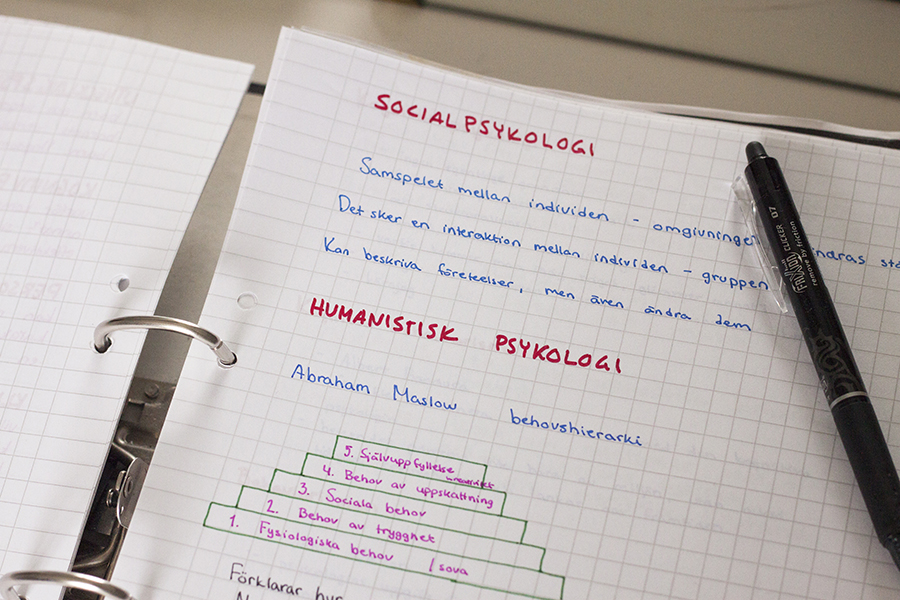how to survive matriculation exams
12.00 pm / health & positivity · writing
During the third year of upper secondary school in Finland, it's for most of us time for matriculation exams (ylioppilaskirjoitukset, studentskrivningar). I had my exams a year ago and this spring, and for me personally, it was an incredibly stressful time. But just as thousands of others every year, I survived it, and I promise you'll too.
I wasn't going to write a blog post about this, but I've wanted for a long time and now I was inspired to do it so I decided to try to get something smart written in a post. This is a very long post, but I hope it will give you something to think about and help you in any way.
I'm also in no way a professional, these are just some things I find important based my own experience. Since we're all different, some or any of these might not work for you. It's just something I personally found that helped me, or would have helped if I had done it.

Before the exam
1. Work hard during courses. If your exams are in a week, this one is already too late for you. If you're still in your first or second year, you still have time for this. You probably already in the beginning of your first year have an idea of what subjects you'll be taking your exams in, so when you're taking courses in those subjects, actually read the books and study properly. You don't have to get 10 in every course, but as long as you've studied properly you'll be fine, because when you're studying for the matriculation exam, everything will feel very familiar and it will be easier to remember stuff. If you haven't studied properly, a lot of the things will feel new and you'll probably need to study more to learn. Trust me, I have experience from this.
2. Find out how you learn best. Some people learn by just reading once or twice, while some need to make notes too. You might find it easier to learn when your notes are colourful. You might need to discuss the subject with someone else to learn yourself. You get the deal. Hopefully you already know how you learn best, if not - find out! By knowing this, you can and should take advantage of it and you'll find it easier to study for the exams.
3. Start studying in time and study smart. Do not start two weeks before the exam! You might get through all the books, but you'll most likely not actually learn much. Also, don't read an entire book in a day, but instead read a few chapters a day. I'd advise you to plan and make a schedule for your studies, so you know how much time you need to get through everything and how much you need to read in a day etc. Of course, for some people planning just doesn't work, but if you're not one of those people I'd recommend to try out planning. This way you can also make time for other activities and know how much time you have for them without losing studying time.
4. Write notes. Even if you don't need notes to learn, I'd recommend writing some notes, for example summaries of each chapter or big thing or just the most important things. Then, some days before the exam you can look through the notes and repeat the most important things instead of looking through all of your books trying to repeat stuff that way.

5. Look at older exams. You've probably already worked with old exams, but it's actually really helpful to do so. You'll get an idea of what types of questions tend to be asked, how the questions are asked and what types of questions there are. You might also notice a pattern in the exams, for example that they ask every year about something that's currently popular or talked about. Also look at the answers, so you'll learn little about how detailed you need to be, what they're really asking about (sometimes, most of the times, you'll need to think outside the box) and stuff like that.
6. Ask for help. If there's something during the course you don't understand, ask your teacher. If you never asked, and find it hard when studying for the exam, ask now. It's not too late to ask, and you might still learn it. Don't be afraid to ask, it's literally your teachers job to help you and explain things you don't understand. The thing you're finding hard, might just be asked in the exam and then you're just going to be very annoyed about it when you didn't ask about it. But, if the exam is in just a few days, and there's something you never learned during the three years of school, you probably won't learn it during this last week either. Focus on something else instead.
7. Don't focus on small details. If you on the morning of your exam get anxious because you can't remember the name of that weird bird, calm down. You will not need to know that. When studying, don't focus too much on the details, learn the bigger picture instead, because that's what you're going to need to know.
8. Keep the day before the exam free. It's very easy to get stressed about the exam and feel like you don't remember anything, but try to not think about it too much and not looking at the literature the day before. Focus on doing other, fun, things the day before, if you're finding it hard to not focus on the exam too much.
During the exam
1. Breathe. If you're really nervous or stressed, try to relax. Breathe. Sometimes when you're really nervous you tend to forget things, and that's not what you want at that point. You might look at the exam and think "I can't answer any of these questions", again - breathe, relax. It'll come to you. Soon you'll be writing as crazy.
2. Listen to the instructions. The instructions are so very important, so listen to what the teacher/s say and follow the instructions you get.
3. Write notes. Before you start writing your essay on the "official" papers, write notes on the "unofficial" ones. You might come up with new information while writing the notes, and you can easily fit it into the final essay. If you're already writing the essay it might be harder to make it fit into the text.

4. Bring good snacks with you. I'd recommend something salty as well as something sugary. Don't forget the drink! Water, juice, lemonade... Whatever you feel like you want. You're going to be there for at least three hours, but most of the exams will take you longer. Even if you're not hungry, eat! It's good for your brain, and you'll have more energy to think.
5. Take breaks. Even if you feel like you don't need it, trust me, you do. Take short breaks between every essay to give your brain some time to rest (and your hand). Drink, eat, go to the bathroom, just sit and look around. I would definitely recommend bathroom breaks at least once. You don't need to actually use the bathroom, but at least you get to move and stretch your body, because let's be real, your body will not be happy when you've been sitting for six hours straight. By leaving the room you also get some new air into your body and you have time to take some deep breaths before going back to write some more essays.
Mental
1. Try not to stress. If you're anything like me, you'll be incredibly stressed about these exams, probably already months in advance. Try not to be. You really do not have anything to be stressed, scared or anxious about. Of course, it's very easy for me to say this, but when your exams are over, you'll understand.
3. The results don't define you, your life or your brain. Who cares if you get full L's? Who cares if you only get A's? Who cares if you get one of all grades? No one. Absolutely no one. None of the grades define you or how smart you are. Getting A doesn't mean you're stupid, not in any way.
4. You will most likely not need good grades for anything. You will not be asked in a job interview in 20 years how many L's you got in your matriculation exams. Of course, having only the best grades look nice on your papers, but literally no one is going to care. The only time you might have use of the grades is when applying to university, when you might get some extra points from some specific subjects based on your results. But even then, the entrance exam is more important. For example, I didn't even take any optional courses in social studies, let alone took the matriculation exam, so I didn't get any extra points from it, but I still got into the school.

5. You can always retake the exam. Sometimes it happens that you know you can do better than the grade you got. Relax! Even if you can do better, you don't always have to prove it. But if you really want to, you can always retake the exam later. I retook the exam in health education, just to prove myself I can do better. Of course, it felt good to get a better grade, but I'll never do anything with it, so now it just feels like I made a really stupid decision by retaking it.
6. It's a lot about technique, not how smart you are. You might have had 10 in every course in English, so when you get E instead of L in the exam, you'll probably feel disappointed. Don't. The matriculation exams in languages have more to do with technique than your actual skills. In other subjects, it might be less about technique, but it still doesn't have anything to do with how smart you are. I took my exam in health education in autumn, and I had read all three books and highlighted the most important things. I retook it in spring, got two grades better, and I had only looked through about one and a half of the three books. I literally got a better grade from studying less.
7. Your life doesn't depend on your grades. You won't die, you won't lose your family and friends, you won't be alone for the rest of your life if you don't get the best results. You won't end up as a king or queen, you're not getting a ticket to eternal life, you're not better than everyone else, if you only get the best grades. At the end, the matriculation exams are really stupid, and they don't prove anything except for just that.
Good luck with your exams! And remember, your grades don't define you.





